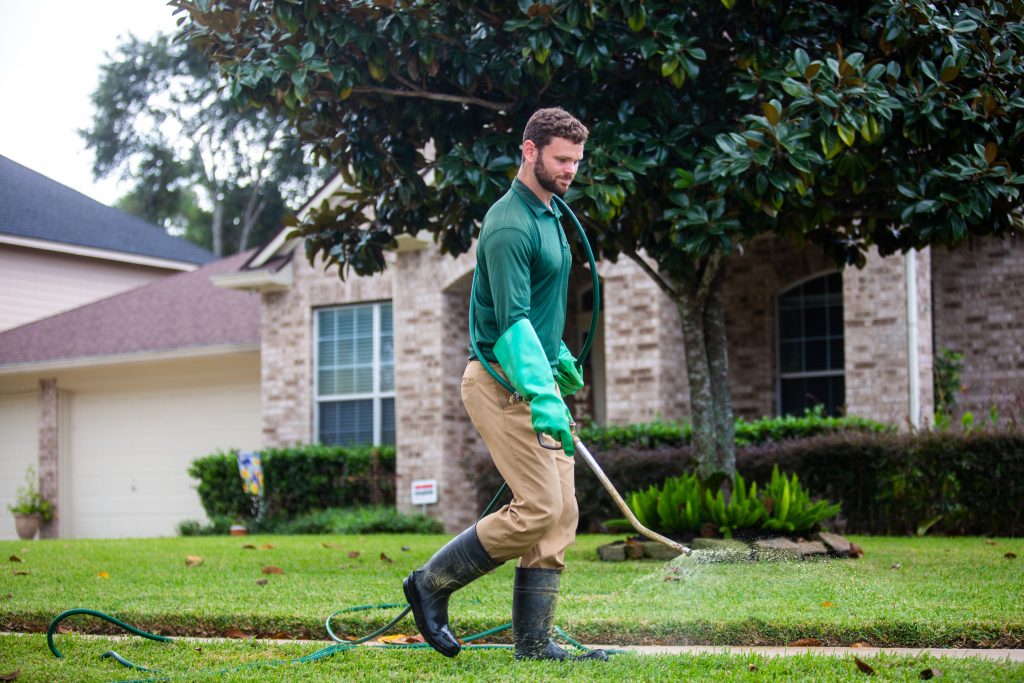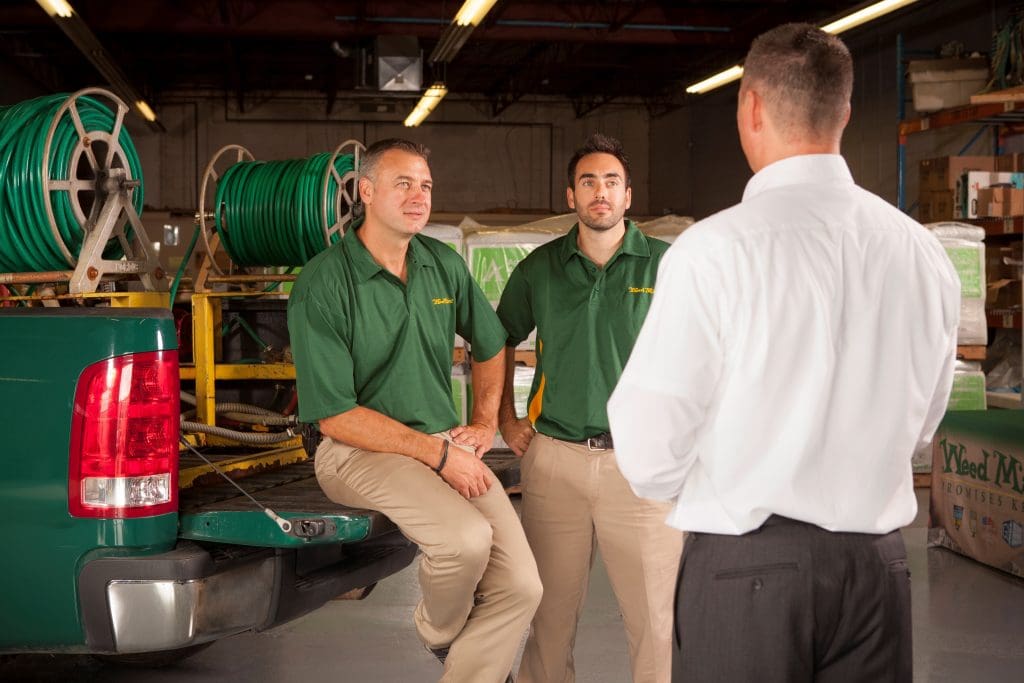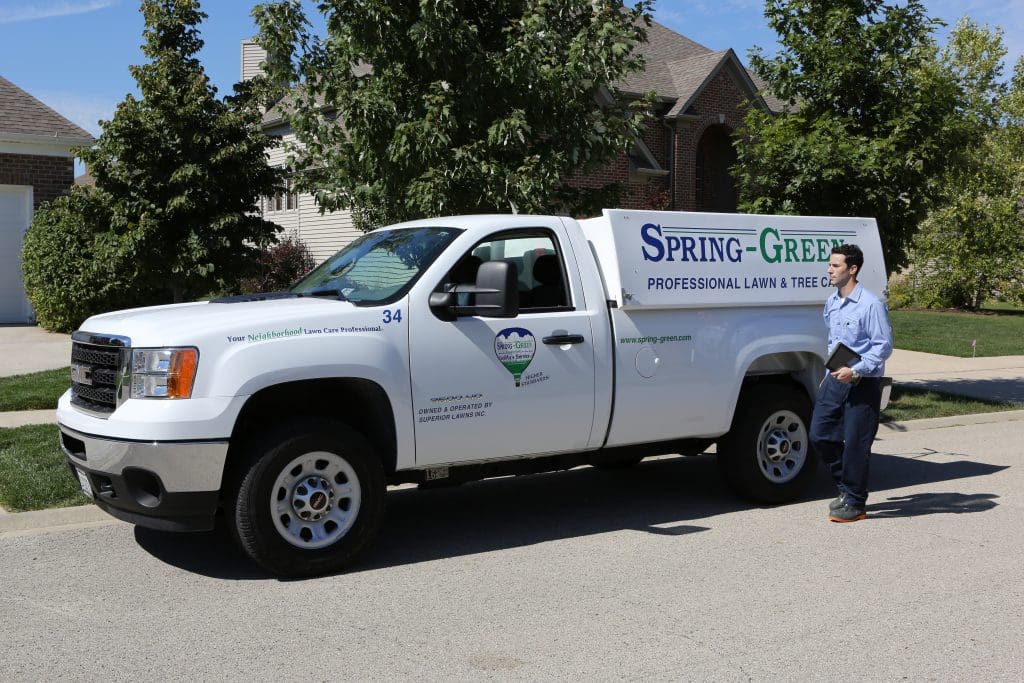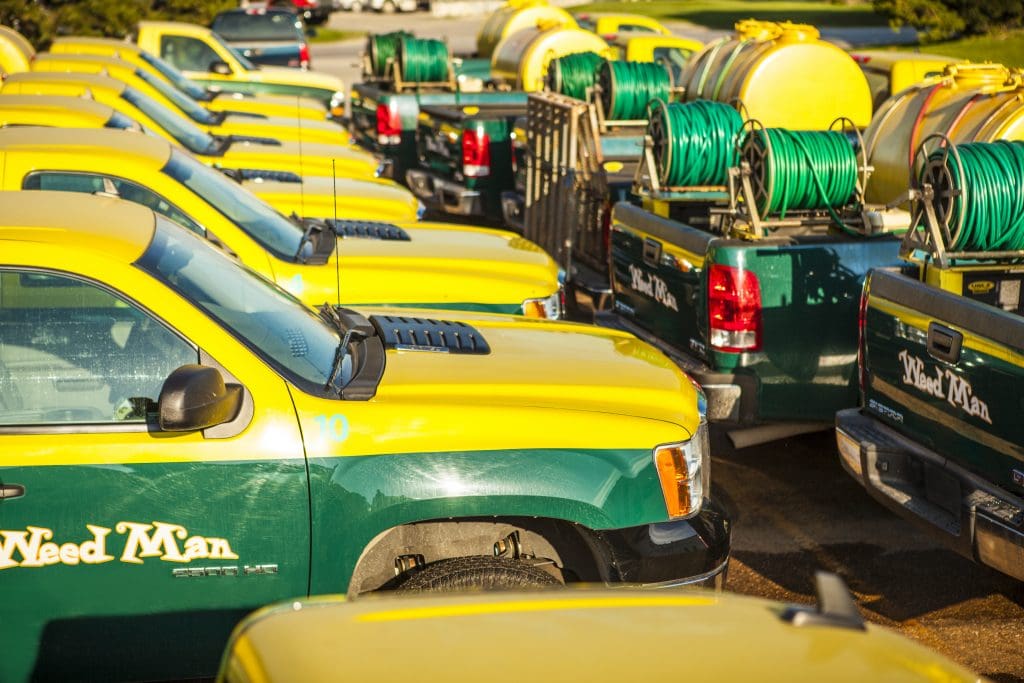
If you are wanting to grow your business, franchising your operations is one route to consider. This is a path that calls for careful consideration but can be the right fit for your company if it lines up with your goals.
Questions to Ask
There are many questions you need to ask to determine if franchising is a good option for you but the most important one to ask is culturally are you able to let go of your brand.
“If you feel that you have to control it at every angle, that would be very hard with franchises because you’re essentially letting go,” says Jennifer Lemcke, LIC, CEO of Weed Man USA. “You’re allowing people to take your vision and your model. You’re going to teach them how to do it, but they may not do it 100 percent the way you want. So, if that would bother you, then you would really need to reconsider because you do lose control over it.”

Weed Man began franchising in 1976 and it was born out of a desire to be customer service driven and to have local owners interacting with customers rather than a branch manager.
Lemcke says another major element you need to consider is if you have a complicated business model, it might not be suited for franchising.
“You have to think how can I put this in a box and teach people how to replicate it over and over and over and make money doing it,” she says. “So if your system is too complicated that you may want to reconsider that and either simplify or really understand if it’s something that somebody else can sell.”
Jeff Kolbe, manager of technical education for Spring-Green Lawn Care, agrees that companies need to have the proper procedures in place in order to replicate a brand across the market.
“I think you have to have a system that can be replicated over and over again,” Kolbe says. “You have to have equipment that can be used in a variety of locations and I think the financial part of it has to be spot on right to the penny.”
You also need to ask if others can make money doing what you’re doing.
“If I’m struggling making a go of it and I’m the creator of the business then I need to rethink franchising because the last thing you want to do is sell something that people can’t make money at,” Lemcke says.
Kolbe says in order for franchising to succeed your business also has to be relevant to the markets your serving. Kolbe says a company should have marketing, legal and operations all in place before trying to franchise.

“I think documentation goes a long way,” Kolbe says. “Record everything. I think that’s an important part. So, one of the things that we have Spring-Green is a thing we call our knowledge base, which is basically anything and everything that has to do with our business lives within. I think you have to set up some kind of a resource at the beginning of the process to know that you can go back and find anything you’re looking for that’s related to the day-to-day business of how you’re doing things.”
Some of the many other questions you need to ask and determine include what your franchising fee will be, what your royalty fees will be, how long training will take and what it will consist of. Lemcke says you need to consider the sizes of territories, if you’re willing to sell multi-units and where franchisees can run the business from.
“I would say a good starting point would be to join the International Franchise Association,” Lemcke says. “That’s where you’ll get a plethora of lawyers and consultants who can help with all of the different legalities that you’re going to need to get it off the ground.”
Lemcke says there are several large consulting firms that help with franchising and can take your company through the process from start to finish and advise you on how to structure your franchise. A franchising lawyer can walk you through the opportunities and pitfalls inside of franchising.
“Make sure that you create a franchise agreement that fits your business model as well as what you want to get out of it,” Lemcke says.
You also need to figure out what support will look like for franchisees. Consider the upfront and ongoing costs for franchisees and look at who has done it in your space successfully and who hasn’t.
Relationships with Franchisees

Lemcke says the franchisor and franchisees have an ongoing relationship. She says you want your franchisees to be financially secure so they’re there for the long run.
Lemcke says she either breaks even or loses money when bringing in a new franchise.
“I’m prepared for that because for me it’s the relationship and the long time longevity of the franchisee in the system that matters,” Lemcke says.
Spring-Green started franchising in the mid-1980s and Kolbe says franchising brings on a whole new level of community to an organization.
As for who is responsible for the success of a franchise, Lemcke says majority of it falls on the individual franchisee as Weed Man has a proven system that works if they put the effort in and execute.
“We offer a system and a process to do lawn care, but we can’t force the franchisee to succeed,” Lemcke says. “We call it a turnkey franchise, but they got to actually turn the key.”
Kolbe says 75 percent of the success of the business falls on the individual franchise owner while 25 percent is on the corporation.
While with franchises you do relinquish some control as an owner, there are still contracts in place to protect your brand. Through the ongoing relationship with franchisees, you can ensure quality control. Kolbe says the key is constant communication.

“We have a team of business consultants that are in direct communication with the franchise owners on a very regular basis,” he says. “We have a set of standards that the franchise owners do need to adhere to in order to stay within compliance for their franchise agreement. All of those things in combination really do help us to keep the brand at the level that we want to have it at.”
If a franchise is struggling or in breach of contract, Lemcke says the worst thing to do is to go in and take a franchise away as it results in a lot of tension and legalities.
“We’ve had in the past, not very often, franchisees that are in breach of contract,” Lemcke says. “So, we’re more the type not to just send a lawyer letter to them and say, ‘You have 14 days to clear your breach.’ We’ll pick up the phone. We’ll go visit them and say, ‘Okay, this is wrong. We need to work together to fix this to bring you up to where you need to be.’”
She says if a franchise is giving the brand a bad name, they will follow up the phone call with legal letters and say enough is enough and look at their options. It could be anything from reducing the size of the territory to taking away their franchise agreement, but Lemcke says Weed Man has never had to resort to that option.
Franchising for a National Footprint

If your ultimate goal is to grow and have a nationwide presence, franchising is one way to achieve that.
Kolbe believes franchises are better suited for companies that want a national footprint as they allow the individual owner to live in the market they’re serving. Lemcke says it depends on the company’s leaders if franchising is a good fit for reaching a national footprint.
“I don’t think it’s better or worse,” she says. “I think it’s just culturally and philosophically how do you want to expand your brand.”
Lemcke says whether you decide to franchise or spread via company branches you need to simplify your systems so you can replicate your success market by market.

